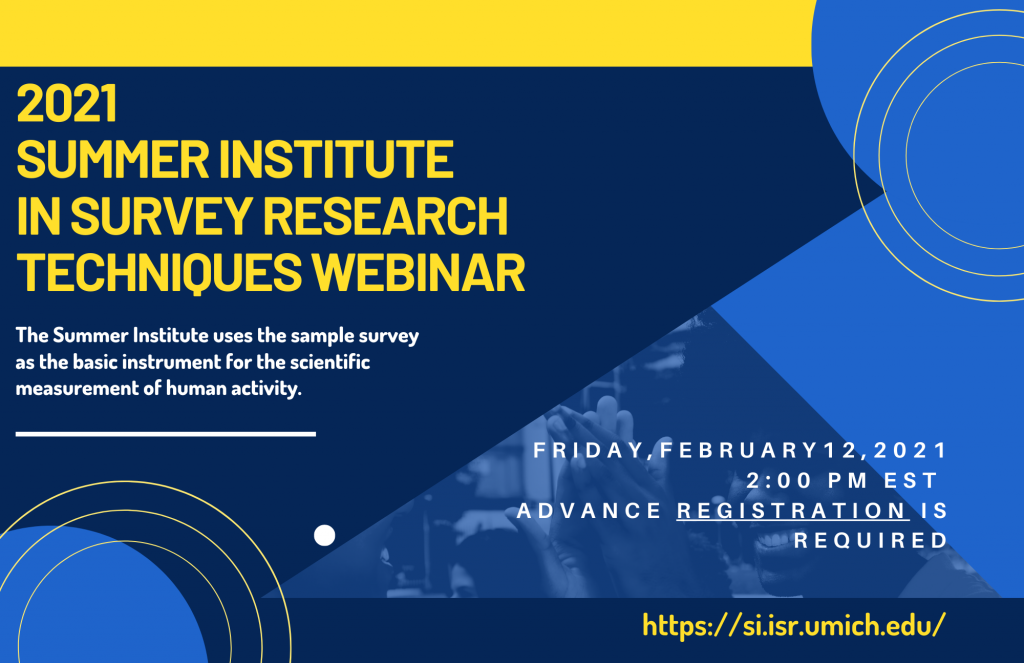The Summer Institute uses the sample survey as the basic instrument for the scientific measurement of human activity. It presents sample survey methods in courses designed to meet the educational needs of those specializing in social and behavioral research such as professionals in business, public health, natural resources, law, medicine, nursing, social work, and many other domains of study.
There is no widely accepted definition of what constitutes a sample survey. There are several characteristics, though, that are widely accepted features. Sample surveys have carefully drawn samples of subjects from well-defined populations. They collect factual information and subjective attitudes from the sample subjects. The results are quantifiably summarized through estimation and analysis of associations among collected measures.
Because the survey techniques used in many Summer Institute courses have a statistical basis, participants in most cases must have a working knowledge of concepts and procedures in elementary statistics. These include measures of central tendency and dispersion, probability distributions and their properties, product-moment correlations, tests of significance, and the analysis of variance. For participants lacking these prerequisites, introductory courses are offered on basic statistical concepts.

